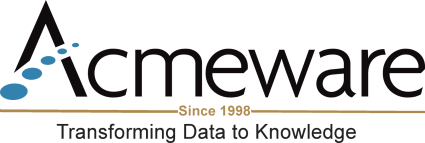How do I make certain the eCQM data I submit is accurate? In this article, we discuss why data validation is so important for eCQMs, and provide a few key tips.
As the calendar year comes to a close, so does the end of that year’s reporting period for various quality reporting programs. With the Hospital Inpatient Quality Reporting (IQR) Program and The Joint Commission ORYX Program requiring the reporting of one self-selected quarter of electronic clinical quality measures (eCQMs) and MIPS requiring a full year of eCQM reporting, continuous data validation is of utmost importance. If you are not yet engaged in electronic data validation, then it’s time to begin. Acmeware has suggestions to establish an efficient and effective validation process.
Validation is necessary to ensure your data collection and calculations are accurate and reflect the clinical care provided to your patient population. Inaccuracies can result from clinical care that is not electronically documented or mapping that is incomplete or incorrect and these inaccuracies can negatively impact your measure performance. The only way to determine if you have one of these issues is to validate your data. In contrast with data collection that is done “manually” as with chart abstraction, the output generated from electronic health record (EHR) submission methods is based purely on technical codes and measure logic which has no human oversight. Validation should be done before you submit to your regulatory agencies because once the submission period closes, the data is locked and cannot be edited nor, can the submission be refiled.
Even if you validated your data for last year’s submission and are submitting the same measures, it’s important to validate again. CMS annually updates the measures for data requirements and nomenclature mapping codes and if the changes impact your selected measures, you may need to make updates to nomenclature mapping. You could also have changes in your EHR and data capture or clinical workflows that impact data collection affecting your measure output.
Finally, because CMS conducts random audits, it is important to be prepared in advance by validating your data. You should be prepared to describe your data collection and discuss any nomenclature mapping activities surrounding it. Acmeware’s OneView product has a document storage feature where you can save any type of file you may need to review or produce in the event of an audit.
Incorporate any reports or validation tools your quality reporting system offers and ask for training or resources on how to use them if you are not familiar with them. As a general rule, the most helpful reports are those that provide a summary of your measurement performance in a dashboard format. You will also benefit from the ability to drill down into each patient or visit to display the data found contributing to the overall performance scores.
When embarking on validation, Acmeware recommends that you focus on patients or visits that do not meet the expected measure performance. It is far more efficient to drill down on the “failure” points which are fewer in occurrence. You should look for patterns of missing documentation or nomenclature mapping issues and address these first. We also recommend that you randomly audit patients or visits that do meet the expected measure performance to avoid inadvertently submitting “false positives.”
If you have questions about your facility’s eCQMs, please contact us.
